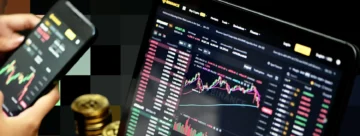MENA Doubles Down on Crypto: The Region’s Latest Blockchain Trends and Initiatives

The Middle East and North Africa (MENA) region was the fastest-growing crypto market in 2022, based on Chainalysis’ recent Geography of Cryptocurrency report.
With a 48% YoY digital asset transaction volume growth, MENA significantly outpaced all major and emerging markets this year, including Latin America (40%) and North America (36%). At the same time, Chanalysis featured Turkey, Morocco, and Egypt among the top 30 nations in the company’s crypto adoption index.
In addition to the overall increase in interest around digital assets, MENA’s astonishing growth was fueled mainly by the rising number of local blockchain initiatives in the region.
Positive Regulatory Developments

Before we jump to the actual initiatives, we must look at the regulatory side of MENA’s crypto adoption.
It is safe to conclude that the governments of MENA have made significant positive developments in this field in the last few years. While US lawmakers are still working to implement clear rules around cryptocurrencies, Dubai has become a major digital asset hub after introducing its crypto-friendly framework in February, attracting numerous major market players to the emirate.
Moreover, the UAE-based Abu Dhabi Global Market (ADGM) was among the first to introduce friendly rules and guidance for cryptocurrencies in 2018. In March 2022, the free economic zone’s digital asset framework was extended with draft recommendations aiming to enable licensed firms to trade NFTs.
At the same time, Bahrain has regulated crypto, while Morocco and Saudi Arabia are developing their own frameworks to supervise the industry.
Using the Blockchain to Solve Crucial Problems

Besides crypto-friendly frameworks, numerous initiatives have been launched in which market players and governmental organizations aim to leverage the blockchain to solve different problems more efficiently than conventional solutions.
In the case of payments, there were pilots in MENA, like the Saudi Arabian Monetary Authority’s (SAMA) blockchain-based transfer to local banks. Another example is Dubai’s Smart City project, which will convert the metropolis into a smart city powered entirely by blockchain by 2028 to address climate change and drastically improve energy efficiency. Furthermore, numerous UAE schools have started teaching pupils about digital assets and distributed ledger technology to increase crypto literacy.
Islamic Coin, along with the underlying Haqq blockchain ecosystem, is one of the blockchain initiatives aimed at the global Muslim community, with a mission to include it in the world’s financial system. Besides being compliant with Shariah law, the project aligns with ESG requirements and promotes sustainable and ethical activities. In November 2022, the project won the “Most Promising ESG Crypto” at the prestigious Middle East Blockchain Awards (MEBA).
GCC Countries Join the Metaverse

In addition to blockchain technology, the MENA region has been focusing on the metaverse as well. This November, Sheikh Hamdan approved the newest phase in Dubai’s virtual world strategy, which aims to create 42,000 jobs and add $4 billion to the emirate’s economy by the end of 2030.
In April, the UAE also established the first metaverse incubator of the Middle East in the Dubai World Trade Centre (DWTC). Called MetaIncubator, the project seeks to help early-stage Web3 and metaverse startups first in Dubai, then expanding to the UAE, and later to all Gulf Cooperation Council (GCC) countries.
However, the UAE is only one contender in the region’s race to conquer the metaverse. According to a recent report, the metaverse’s yearly contribution to Saudi Arabia’s economy by 2030 is expected to be more than double (at $7.6 billion) the United Arab Emirates’ $3.3 billion.
Researchers project that the metaverse will add an annual $1.6 billion to Qatar’s economy, $1 billion to Kuwait’s, $800 million to Oman’s, and $400 million to Bahrain’s in the next seven years.
MENA Doubles Down on the Blockchain

In terms of crypto adoption, MENA has become the top region by growth in 2022. And this shouldn’t come as a surprise.
Besides implementing crypto-friendly regulatory frameworks that facilitate innovation and boost local activities and growth, MENA nations have been leveraging blockchain to tackle challenges related to climate change, energy usage, sustainable investments, and digital asset education.
At the same time, GCC countries are actively exploring the metaverse, which is expected to add a total of $15 billion annually to their economies by the end of 2030.
Considering the above, these developments represent excellent news for the industry. It will be exciting to see how the MENA region’s blockchain scene will change in the next few years and whether it can challenge North America, Western Europe, and APAC in this field.










